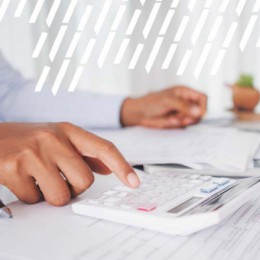Posted On: November 4, 2016 by Prevail Bank in: Home Loans

The Federal Reserve may have raised interest rates slightly, but mortgage rates are still near historic lows. It's still a great time to buy if you've been considering a new home! But how much house can you really afford? This is a difficult question, particularly for first-time homebuyers. Here are a few important points to consider when setting your house-hunting budget:
Start with your Income & Interest Rate
When setting your budget for a house, there are two primary factors that will influence how much you should spend: your income and your interest rate. When calculating your income, be sure to use the total combined pre-tax annual income (for both borrowers, if you are co-borrowing), including commissions, bonuses, overtime, etc. A good starting point for your house budget will be a mortgage of no more than five times your annual income. So, if you make $45,000/year, shoot for a mortgage less than $225,000.
The next big factor is the interest rate you expect to get on your mortgage, along with the loan term (the length of the loan). Common mortgage loan terms are 30, 20 and 15 years. The interest rate you receive will depend greatly on how large your down payment is, the loan term you select, and your debt-to-income ratio. A good DTI ratio is 20 percent debt to 80 percent assets, but that could go as high as 40 percent in some cases. Since determining your interest rate is complex, it's a good idea to seek advice from a licensed real estate agent or mortgage banker.
Factor in Recurring Expenses
Be sure to factor in other debt payments when calculating your ideal monthly mortgage payment. As a general guideline, your total debt payments should be no more than 36 percent of your income each month. Also be sure to include any recurring expenses, such as groceries, gym memberships, cell phone plans, etc., that cut into your available spending each month. In addition, you'll need to have homeowners insurance, so factor in that monthly cost as well.
One major recurring expense that new homeowners sometimes forget to include is property tax. While in most cases this will be paid during the year and held in an escrow account, you'll need to estimate the total and add it to your mortgage payment. Since property taxes can vary widely based on geography, check with a local banker or real estate agent to get an accurate estimate.
Leave Room to Save
Finally, when calculating your ideal monthly mortgage payment, be sure to leave your budget enough room to put some savings aside each month. Remember, your down payment probably impacted your savings significantly, so you'll want to start rebuilding that rainy day fund as soon as possible.
Buying a home is a complex process and a significant investment, so don't go it alone. Choose a banker and real estate agent who will guide you through the process and help you make sound financial decisions.
Written By: the WBA




